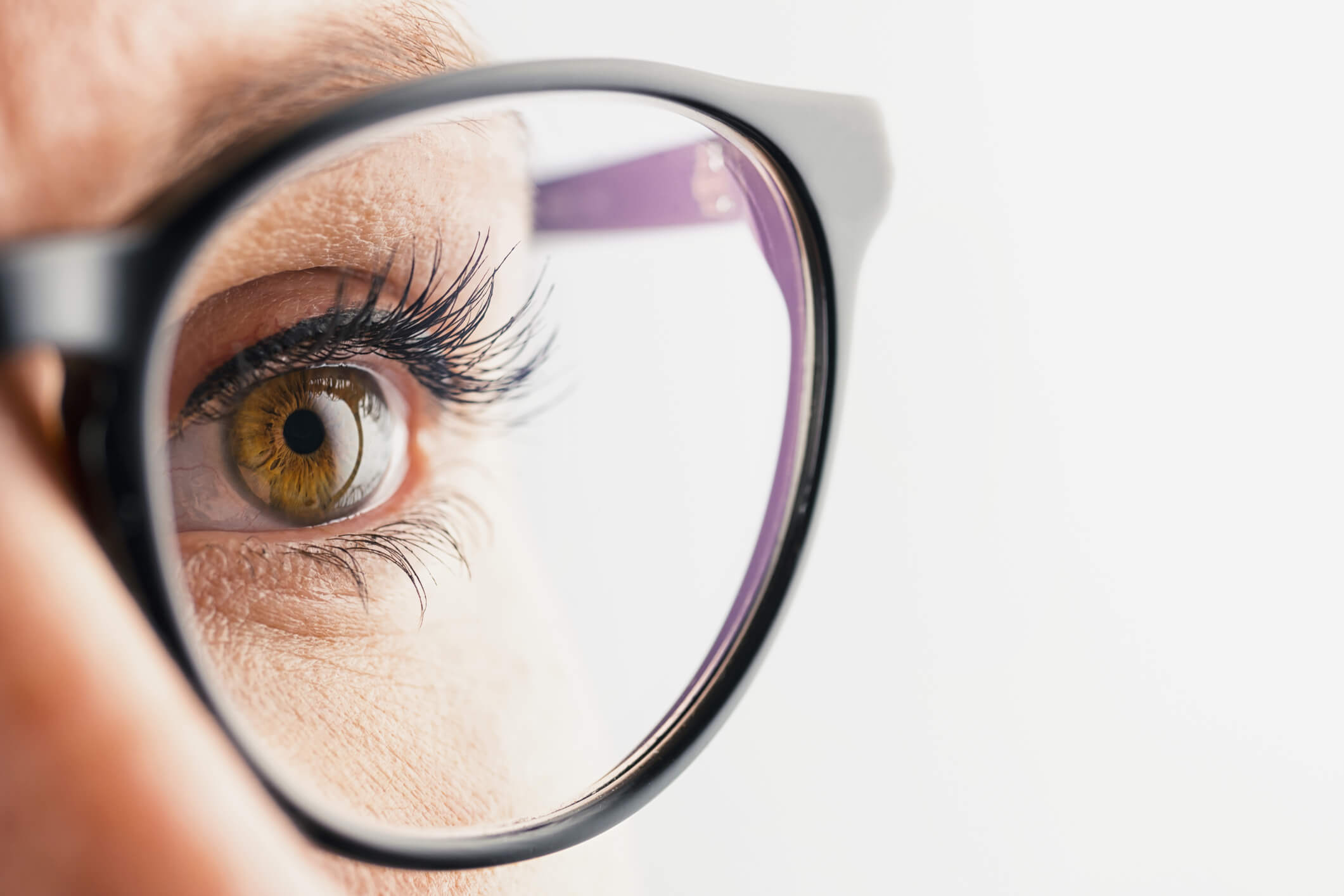-
Did you know that 90 percent of Australians say that sight is their most valued sense?1 Is it yours?
We chat to Pete Murphy, Director of Eye Care and Community at OPSM about the lesser-known health benefits of the common eye test and answer your top questions about eye health. Because when you think about it, looking after your eyes isn’t just about wearing the right glasses, it’s about living well!
What do optometrists do?
Optometrists can help each of us understand the important link between the condition of our eyes and our overall health and wellbeing. On any given day, an optometrist may diagnose and treat eye disorders and vision problems, prescribe and dispense glasses and contact lenses, and provide expert advice on eye care which is unique to each patient. A day may also include working with other health providers, referring to ophthalmologists for surgery, or talking with GPs to set up a management strategy to care for a patient’s health concerns.
“It’s really satisfying to be able to improve the sight of someone who has been struggling with vision problems, or to see the smile on a teenager’s face when they see clearly with contact lenses for the first time”, says Pete.
READ MORE: How to relieve dry eyes
Why is it important to get your eyes tested?
In Australia, 90 percent of vision loss is preventable or treatable2, so making time for regular eye tests is essential to detect and treat ocular conditions early and ensure your eyes are in top shape for years to come.
Interestingly, the early warning signs of a variety of general health issues can often display as changes in vision or the internal appearance of the eye. Using the latest technologies, an eye test can help identify the first signs of eye disease, as well as conditions such as diabetes and high blood pressure. This insight allows optometrists to support the overall health of their patients and may assist in the early detection of diseases that can lead to serious health complications, such as stroke, heart attack and kidney disease in the future.
READ MORE: Should you be worried about seeing floating spots?
How do I look after my eyes?
Check out our top 5 tips for healthy and happy eyes.
1. Book an eye test.
Optometrists recommend having your eyes tested every two years, or more frequently if you have an existing eye or medical condition that may affect your eyes. Consult your GP or optometrist about the right eye test schedule for you. Making a regular eye test part of your personal health check routine is essential to protect your sight and look after your general health and wellbeing from top to toe.
2. Know your family’s eye health history.
Take an interest in your family’s health history and learn about any eye conditions that have occurred within your family tree. Have your parents, grandparents or siblings experienced eye disease? Do they wear glasses or contact lenses? Often there’s a genetic component to eye conditions, so having the conversation with your loved ones and building up your health knowledge is a great way to be proactive about taking care of your eyes for the long-term.
3. Eat, move and feel better.
Healthy food choices and making time each day for exercise can support you to achieve and maintain a healthy weight and ensure your body is getting the nutrients it needs. Plus, a balanced diet full of green leafy vegetables, fresh fruits, nuts and fish are all good for your eyes, so add some healthy colour to your plate and your peepers will thank you for it!
4. Kick the habit.
Smoking contributes to the early development of age-related macular degeneration, which is the most common cause of blindness in the Western world3. Quitting smoking or being a non-smoker can help ensure that healthy eyes and good vision are maintained for as long as possible. Committing to quit isn’t always easy, but the health benefits are well worth the effort.
5. Protect your eyes.
Just like layering on sunscreen and protective clothing to shield your skin from the sun, don’t forget to protect your eyes from harmful UV by always wearing sunglasses and a hat when you’re outside. Combining sunglasses and a sun-safe hat can reduce UV radiation from reaching your eyes by up to 98%4. Keep a pair of safety eyewear or protective goggles handy at home to use when working with gardening equipment or chemicals around the house or backyard too.
FAQs: All about eyes
Pete shares the top eye health questions OPSM optometrists are answering.
Does working on your computer harm your eyes?
No, however working on a computer may give you some eyestrain and highlight the need for glasses in some cases.Can eating carrots give you better vision?
Unfortunately, no! However, eating a healthy and well-balanced diet consisting of green leafy vegetables, fresh fruits, nuts and fish are all good for your eyes.Why do I have ‘red eyes’ in photos?
‘Red eye’ occurs in photos because light from the flash bounces off the back of the eye. The choroid is located behind the retina and is rich in blood vessels, which make it appear red in a photo.Can contact lenses get lost behind your eye?
Thankfully, no. Contact lenses can get stuck under your eyelid, but it's not possible for them to go behind your eye, as your eyelids actually connect with your eye itself forming a barrier that prevents objects from going ‘behind’ your eye.What does 20/20 vision mean?
20/20 is considered normal vision. When a patient can read an eye chart (used during an eye test) from 20 feet (6 metres) away and under normal lighting conditions, they’re considered to have normal vision.
The role of an optometrist

1 https://www.health.gov.au/health-topics/eye-health
2 http://www.vision2020australia.org.au/media/2017-10-11/eye-health-and-vision-care-facts-and-figures
3 https://www.betterhealth.vic.gov.au/health/ConditionsAndTreatments/smoking-and-eye-disease
4 https://www.cancercouncil.com.au/126426/cancer-prevention/sun-protection/tips-for-being-be-sunsmart/tips-for-sun-protection/protecting-your-eyes-from-the-sun/
-
Have your kids had an eye check?
How often should kids get their eyes tested? What are the common signs of vision problems to look out for in children? We answer your questions here.
-
OPSM shines light on link between mental health and eyesight
OPSM urges Australians to get their eyes tested this World Sight Day.
-
How to balance your screen time during COVID-19
Give your eyes a break to avoid digital eye strain.
Subscribe to receive the best from Live Better every week. Healthy recipes, exercise tips and activities, offers and promotions – everything to help you eat, move and feel better.
By clicking sign up I understand and agree to Medibank's privacy policy


